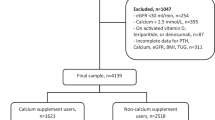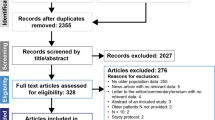Abstract
Introduction
In the treatment of metastatic breast cancer (mBC), regular monitoring is key in helping physicians to make informed clinical decisions, managing treatment side effects, and maintaining patients’ quality of life. Therefore, we investigated the monitoring frequency in post-menopausal women with HR+/HER2− mBC stratified by first-line regimen.
Methods
Treatment monitoring was assessed using two complementary data sources: a medical chart review (chart review analysis) and a commercial claims database (claims analysis). Women with post-menopausal HR+/HER2− mBC who initiated first-line therapy for mBC were selected and classified under three cohorts, based on treatment received: cyclin-dependent kinase 4/6 (CDK4/6) inhibitor (i.e., palbociclib—the only CDK4/6 approved at the time of the study), endocrine therapy (ET), and chemotherapy. Frequency of monitoring [complete blood count (CBC), electrocardiogram (EKG), and liver function test (LFT)] and laboratory abnormalities detected during the first line of therapy were analyzed.
Results
In the chart review analysis, 64 US oncologists abstracted medical information on 401 eligible patients, including 210 CDK4/6 users, 121 ET users, 51 chemotherapy users; 19 patients used other regimens. All patients had ≥ 1 CBC; between 8.3% (ET users) and 39.5% (CDK4/6 users) had ≥ 1 EKG; and over 98% of patients had ≥ 1 LFT across all three cohorts. Among monitored patients, 64.6% had a CBC abnormality, with anemia (39.9%), leukopenia (27.4%), and neutropenia (26.7%) being the most common. Abnormal EKG readings were detected in 8.4, 0.0%, and 7.7% of CDK4/6, ET, and chemotherapy users, respectively. LFT abnormalities were detected in 14.1–26.0% of CDK4/6 and chemotherapy users, respectively. Similar frequency of monitoring was observed in the claims analysis, with the exception of EKG monitoring, for which the proportion of patients tested was higher.
Conclusion
Post-menopausal women with HR+/HER2− mBC receiving first-line therapy with CDK4/6, ET, or chemotherapy were regularly monitored regardless of the first-line regimen received.
Funding
Novartis Pharmaceuticals Corporation.

Similar content being viewed by others
References
American Cancer Society. Cancer facts & figures 2017 2017. https://www.cancer.org/research/cancer-facts-statistics/all-cancer-facts-figures/cancer-facts-figures-2017.html. Accessed 26 July 2017.
Howlader N, Noone AM, Krapcho M, Miller D BK, Kosary CL, Yu M, et al. SEER Cancer statistics review, 1975-2014 Bethesda, MD: National Cancer Institute; 2017 based on November 2016 SEER data submission. https://seer.cancer.gov/csr/1975_2014/. Accessed 3 July 2017.
Pritchard KI, Gelmon KA, Rayson D, Provencher L, Webster M, McLeod D, et al. Endocrine therapy for postmenopausal women with hormone receptor-positive her2-negative advanced breast cancer after progression or recurrence on nonsteroidal aromatase inhibitor therapy: a Canadian consensus statement. Curr Oncol. 2013;20(1):48–61.
Lewis S, Willis K, Yee J, Kilbreath S. Living well? strategies used by women LIVING with metastatic breast cancer. Qual Health Res. 2016;26(9):1167–79.
NIH—National Cancer Institute. Metastatic cancer. https://www.cancer.gov/types/metastatic-cancer.
Robertson JFR, Bondarenko IM, Trishkina E, Dvorkin M, Panasci L, Manikhas A, et al. Fulvestrant 500 mg versus anastrozole 1 mg for hormone receptor-positive advanced breast cancer (FALCON): an international, randomised, double-blind, phase 3 trial. Lancet. 2016;388(10063):2997–3005.
National Comprehensive Cancer Network (NCCN). Clinical practice guidelines in oncology—breast cancer version 3.2017 https://www.nccn.org/professionals/physician_gls/f_guidelines.asp. Accessed 8 Dec 2017.
NIH—National Cancer Institute. Hormone therapy for breast cancer https://www.cancer.gov/types/breast/breast-hormone-therapy-fact-sheet. Accessed 13 Sept 2017.
Bedard PL, Freedman OC, Howell A, Clemons M. Overcoming endocrine resistance in breast cancer: are signal transduction inhibitors the answer? Breast Cancer Res Treat. 2008;108(3):307–17.
Finn RS, Crown JP, Lang I, Boer K, Bondarenko IM, Kulyk SO, et al. The cyclin-dependent kinase 4/6 inhibitor palbociclib in combination with letrozole versus letrozole alone as first-line treatment of oestrogen receptor-positive, HER2-negative, advanced breast cancer (PALOMA-1/TRIO-18): a randomised phase 2 study. Lancet Oncol. 2015;16(1):25–35.
Hortobagyi GN, Stemmer SM, Burris HA, Yap YS, Sonke GS, Paluch-Shimon S, et al. Ribociclib as first-line therapy for HR-positive, advanced breast cancer. N Engl J Med. 2016;375(18):1738–48.
Sledge GW Jr, Toi M, Neven P, Sohn J, Inoue K, Pivot X, et al. MONARCH 2: abemaciclib in combination with fulvestrant in women with HR+/HER2− advanced breast cancer who had progressed while receiving endocrine therapy. J Clin Oncol. 2017;35(25):2875–84.
Goetz MP, Toi M, Campone M, Sohn J, Paluch-Shimon S, Huober J, et al. MONARCH 3: abemaciclib as initial therapy for advanced breast cancer. J Clin Oncol. 2017;35(32):3638–46.
US Food and Drug Administration. IBRANCE® (palbociclib)—highlights of prescribing information https://www.accessdata.fda.gov/drugsatfda_docs/label/2015/207103s000lbl.pdf. Accessed 13 Sept 2017.
US Food and Drug Administration. KISQALI® (ribociclib)—highlights of prescribing information https://www.accessdata.fda.gov/drugsatfda_docs/label/2017/209092s000lbl.pdf. Accessed 17 Nov 2017.
US Food and Drug Administration. VERZENIO™ (abemaciclib)—Highlights of Prescribing Information https://www.accessdata.fda.gov/drugsatfda_docs/label/2017/208716s000lbl.pdf. Accessed 17 Nov 2017.
Accordino MK, Wright JD, Vasan S, Neugut AI, Hillyer GC, Hu JC, et al. Use and costs of disease monitoring in women with metastatic breast cancer. J Clin Oncol. 2016;34(24):2820–6.
Spring LM, Zangardi ML, Moy B, Bardia A. Clinical Management of Potential Toxicities and Drug Interactions Related to Cyclin-Dependent Kinase 4/6 Inhibitors in Breast Cancer: Practical Considerations and Recommendations. Oncologist. 2017;22:1039–48.
Kassem L, Shohdy KS, Lasheen S, Abdel-Rahman O, Bachelot T. Hematological adverse effects in breast cancer patients treated with cyclin-dependent kinase 4 and 6 inhibitors: a systematic review and meta-analysis. Breast Cancer. 2017;25:17–27.
Dalal AA, Gagnon-Sanschagrin P, Burne R, Guerin A, Gauthier G, Small T, et al. Dosing Patterns and Economic Burden of Palbociclib Drug Wastage in HR+/HER2- Metastatic Breast Cancer. Adv Ther. 2018. https://doi.org/10.1007/s12325-018-0701-5.
Quan H, Sundararajan V, Halfon P, Fong A, Burnand B, Luthi JC, et al. Coding algorithms for defining comorbidities in ICD-9-CM and ICD-10 administrative data. Med Care. 2005;43(11):1130–9.
Goldrick A, Olivotto IA, Alexander CS, Speers CH, Barnett J, Allan SJ, et al. Anemia is a common but neglected complication of adjuvant chemotherapy for early breast cancer. Curr Oncol. 2007;14(6):227–33.
Mouridsen H, Gershanovich M, Sun Y, Perez-Carrion R, Boni C, Monnier A, et al. Phase III study of letrozole versus tamoxifen as first-line therapy of advanced breast cancer in postmenopausal women: analysis of survival and update of efficacy from the International Letrozole Breast Cancer Group. J Clin Oncol. 2003;21(11):2101–9.
Nabholtz JM, Buzdar A, Pollak M, Harwin W, Burton G, Mangalik A, et al. Anastrozole is superior to tamoxifen as first-line therapy for advanced breast cancer in postmenopausal women: results of a North American multicenter randomized trial. Arimidex Study Group. J Clin Oncol. 2000;18(22):3758–67.
Zhang Q, Shao Z, Shen K, Li L, Feng J, Tong Z, et al. Fulvestrant 500 mg vs 250 mg in postmenopausal women with estrogen receptor-positive advanced breast cancer: a randomized, double-blind registrational trial in China. Oncotarget. 2016;7(35):57301–9.
Acknowledgements
Funding
Sponsorship for this study and article processing charges were funded by Novartis Pharmaceuticals Corporation. All authors had full access to all of the data in this study and take complete responsibility for the integrity of the data and accuracy of the data analysis.
Authorship
All named authors meet the International Committee of Medical Journal Editors (ICMJE) criteria for authorship for this article, take full responsibility for the integrity of the work as a whole, and have given their approval for this version to be published.
Medical Writing, Editorial, and Other Assistance
Medical writing assistance was provided by Samuel Rochette, an employee of Analysis Group, Inc. Analysis Group received consulting fees from Novartis for the conduct of this study.
Disclosures
Anand A. Dalal is an employee of Novartis. Tania Small was an employee of Novartis at the time of this study and is currently an employee of Ipsen. Debbie Goldschmidt is an employee of Analysis Group, Inc., which received consulting fees from Novartis for the conduct of this study. Hela Romdhani is an employee of Analysis Group, Inc., which received consulting fees from Novartis for the conduct of this study. Sneha Kelkar is an employee of Analysis Group, Inc., which received consulting fees from Novartis for the conduct of this study. Patrick Gagnon–Sanschagrin is an employee of Analysis Group, Inc., which received consulting fees from Novartis for the conduct of this study. Annie Guérin is an employee of Analysis Group, Inc., which received consulting fees from Novartis for the conduct of this study. Genevieve Gauthier is an employee of Analysis Group, Inc., which received consulting fees from Novartis for the conduct of this study. Eric Q. Wu is an employee of Analysis Group, Inc., which received consulting fees from Novartis for the conduct of this study. Polly Niravath received honoraria from Novartis as a consultant.
Compliance with Ethics Guidelines
All procedures performed in studies involving human participants were in accordance with the ethical standards of the institutional and/or national research committee and with the 1964 Helsinki declaration and its later amendments or comparable ethical standards. For the commercial claims analysis, the data were de-identified and fully compliant with the patient confidentiality requirements of the Health Insurance Portability and Accountability Act; therefore, no ethical review by an institutional review board was required. For the retrospective chart review, we obtained institutional review board exemption from the New England Institutional Review Board.
Data Availability
Chart Review: The datasets analyzed during the current study are available from the corresponding author upon reasonable request. Please note that institutional review board confirmation will be needed before the data can be shared with additional parties. Claims Analysis: The claims database (Truven MarketScan Commercial Database) is proprietary, provided by a third-party vendor, and the authors do not have permission to disseminate the data without the vendor’s approval. The study sponsor has purchased access to the database (the authors have been granted access to the data on a contract per project use). Access to this data set is available to any other interested parties for a fee set by Truven Health Analytics (https://marketscan.truvenhealth.com/marketscanportal/).
Author information
Authors and Affiliations
Corresponding author
Additional information
Enhanced digital content
To view enhanced digital content for this article go to https://doi.org/10.6084/m9.figshare.6476963.
Rights and permissions
About this article
Cite this article
Guérin, A., Goldschmidt, D., Small, T. et al. Monitoring of Hematologic, Cardiac, and Hepatic Function in Post-Menopausal Women with HR+/HER2− Metastatic Breast Cancer. Adv Ther 35, 1251–1264 (2018). https://doi.org/10.1007/s12325-018-0740-y
Received:
Published:
Issue Date:
DOI: https://doi.org/10.1007/s12325-018-0740-y




